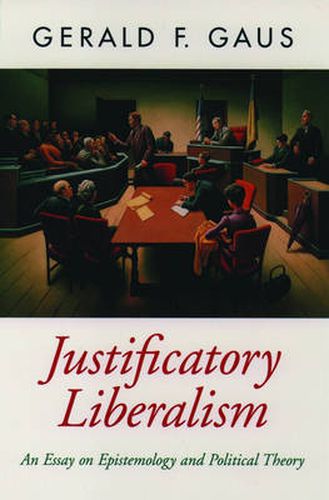Readings Newsletter
Become a Readings Member to make your shopping experience even easier.
Sign in or sign up for free!
You’re not far away from qualifying for FREE standard shipping within Australia
You’ve qualified for FREE standard shipping within Australia
The cart is loading…






Gerald Gaus draws on current work in epistemology and cognitive psychology to defend a modest version of cognitive relativism. Building on this theory of personal justification, he asks, How do we justify moral and political principles to others? Here, the populist proposal put forward by political liberals –that the assent of all reasonable citizens must be obtained–is considered and rejected. Because reasonable people often ignore excellent reasons, moral and political principles can be considered conclusively justified, even in the face of some reasonable dissent. Conclusive justification, however, is difficult to achieve, and Gaus acknowledges that most of our public justifications are inconclusive. He then addresses the question of how citizens can adjudicate their inconclusive public justifications. The rule of law, liberal democracy and limited judicial review are defended as elements of a publicly justified umpiring procedure.
$9.00 standard shipping within Australia
FREE standard shipping within Australia for orders over $100.00
Express & International shipping calculated at checkout
Stock availability can be subject to change without notice. We recommend calling the shop or contacting our online team to check availability of low stock items. Please see our Shopping Online page for more details.
Gerald Gaus draws on current work in epistemology and cognitive psychology to defend a modest version of cognitive relativism. Building on this theory of personal justification, he asks, How do we justify moral and political principles to others? Here, the populist proposal put forward by political liberals –that the assent of all reasonable citizens must be obtained–is considered and rejected. Because reasonable people often ignore excellent reasons, moral and political principles can be considered conclusively justified, even in the face of some reasonable dissent. Conclusive justification, however, is difficult to achieve, and Gaus acknowledges that most of our public justifications are inconclusive. He then addresses the question of how citizens can adjudicate their inconclusive public justifications. The rule of law, liberal democracy and limited judicial review are defended as elements of a publicly justified umpiring procedure.